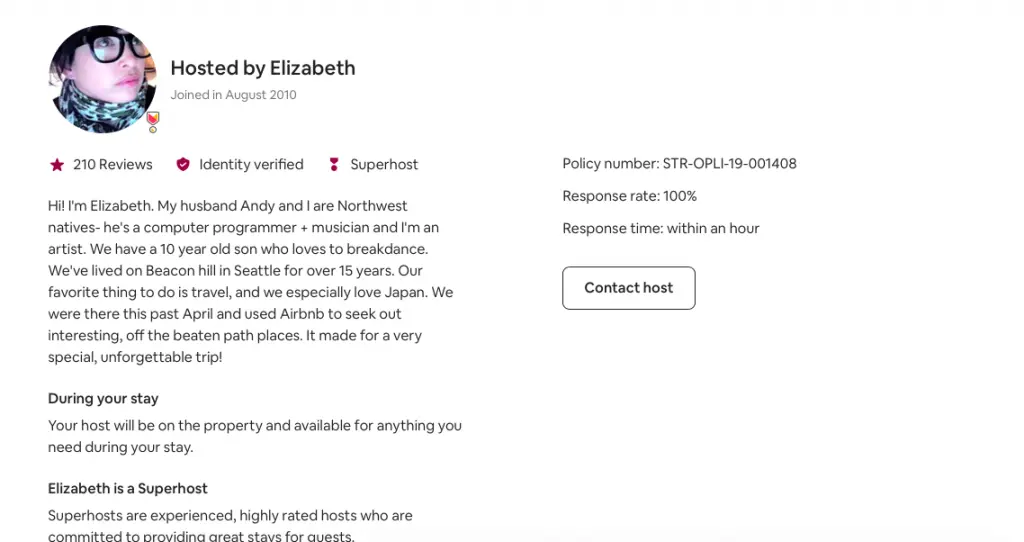With tough competition in the marketplace, it can be challenging for new companies to gain traction and thrive against established competitors. However, several years ago, one budding business managed to do just that by leveraging competitor data to inform its strategy and drive growth.
The Story Behind Airbnb Using Competitor Data

Image Source: Get Paid For Your Pad
One notable example of a company that has successfully utilized competitor data to thrive in the marketplace is Airbnb. The home-sharing platform entered an already crowded hospitality market dominated by traditional hotel chains like Marriott and Hilton.
However, instead of trying to compete directly with these giants, Airbnb embraced its unique position as a disruptor and used competition data to inform its strategy.
Airbnb analyzed various aspects of the hotel industry, including room rates, location distribution, guest services, and online reputation management.
By doing so, they identified several areas where hotels fell short and saw opportunities to provide superior experiences for travelers seeking alternative accommodations.
First, with competitor data, Airbnb noticed that many hotels charged premium prices for standard rooms, often lacking character or personal touches. In response, Airbnb emphasized the uniqueness of each listing, highlighting local charm and authenticity.
They encouraged hosts to showcase their homes’ distinctive features, such as quirky decor or breathtaking views, making staying at an Airbnb property feel less transactional and more experiential than conventional hotels.
Second, Airbnb recognized that guests frequently complained about impersonal interactions with staff members during their stays. To address this issue, Airbnb fostered a community-driven approach, allowing users to communicate directly with hosts before booking and providing recommendations based on shared interests.
Guests appreciated feeling welcomed by locals who could offer insider tips and genuine connections, creating positive word-of-mouth advertising for the platform.
Third, Airbnb capitalized on the fact that most hotels are concentrated in central business districts and tourist hotspots by using competitor data.
By contrast, Airbnb listings span diverse neighborhoods, catering to travelers interested in off-the-beaten-path adventures or extended stays.
This decentralization offered guests greater flexibility and convenience, especially when visiting cities with limited hotel options or steep room rates.
Lastly, Airbnb closely monitored user reviews and ratings of both its properties and competitor hotels. By addressing issues promptly and soliciting constructive feedback from guests, they maintained consistently high standards across all listings.
Moreover, negative comments about hotels—such as hidden fees or poor cleanliness—were highlighted in Airbnb’s marketing campaigns, reinforcing the perception that choosing their platform resulted in a better experience.
While this may seem like an obvious success story, setting up such a business model wasn’t without its challenges.
Setbacks & Challenges Overcome
Breaking into such a competitive market even with the use of competitor data and a business model so different from the normal at the time, Airbnb faced some immense challenges.
- Regulatory Barriers: Cities around the world imposed restrictions on short-term rentals, forcing Airbnb to navigate complex legal landscapes and adapt its policies accordingly.
- Safety Concerns: Reports of unsafe living conditions, theft, and even violent incidents raised questions about trustworthiness and security for some users. In response, Airbnb implemented stricter vetting processes for both hosts and guests, enhanced insurance coverage, and provided resources for resolving disputes.

Image Source: TStays
- Quality Control: Ensuring consistency in an ever-growing inventory of disparate listings proved challenging. Airbnb invested heavily in tools and systems for verifying host identities, collecting accurate information about properties, and facilitating smooth transactions.
- Platform Parity: Competing platforms like HomeAway and VRBO emerged, posing additional threats to Airbnb’s dominance. To maintain its competitive edge, Airbnb continually innovates and expands its offerings, integrating features such as Experiences (curated activities hosted by locals), Luxe (high-end rental properties), and Adventures (multi-day trips led by expert guides).
- Brand Reputation: Amid growing controversy surrounding gentrification, affordability crises, and housing shortages in popular tourist destinations, Airbnb faces ongoing scrutiny regarding its social responsibility.
Addressing these concerns requires careful consideration of ethical implications, transparent dialogue with stakeholders, and proactive measures aimed at mitigating adverse impacts.
Despite encountering numerous obstacles along the way, Airbnb has demonstrated remarkable resilience and adaptability in harnessing competitor data to carve out a unique niche within the highly competitive hospitality market.
Their success offers valuable lessons for businesses striving to differentiate themselves and achieve sustainable growth in saturated industries.
Key Takeaways from Airbnb’s Experience Using Competitor Data
- Emphasis on Uniqueness: Airbnb focused on promoting the distinctiveness of each listing, appealing to travelers seeking authentic experiences rather than cookie-cutter hotel rooms.
- Personal Connections: By fostering direct communication between guests and hosts, Airbnb addressed common complaints about impersonal interactions in the hotel industry.

Image Source: Guest Hook
- Decentralization: Capitalizing on the lack of diversity in hotel locations, Airbnb expanded its presence into diverse neighborhoods, offering flexible and convenient alternatives for travelers.
- Continuous Improvement: Airbnb actively sought user feedback and responded swiftly to address concerns, ensuring consistent quality across all listings and enhancing guest satisfaction.
- Leveraging Negative Perceptions: Airbnb cleverly exploited dissatisfaction with elements of the hotel experience (e.g., hidden fees) to strengthen its value proposition.
Ultimately, Airbnb’s ability to leverage competitor data has played a significant role in its rapid growth and disruption of the traditional hospitality industry. By identifying gaps and weaknesses among incumbent players, they developed innovative solutions tailored to modern travelers’ preferences. Today, Airbnb boasts millions of active listings worldwide, solidifying its status as a formidable force in the accommodation sector.
Airbnb’s Current Performance
- Listings: As of 2024, Airbnb has over 5 million hosts worldwide and 7.7+ million active listings on its platform.
- Revenue Growth: Airbnb’s current valuation is at $113 billion.
- User Base: Airbnb boasted nearly 1.4 billion cumulative guest arrivals since its founding in 2008, with over 1 billion nights booked in 2022 alone.
- Employees: As of December 2022, Airbnb had 6,811 employees, led by CEO Brian Chesky, who has been with the company since its inception in 2008.
Conclusion
Airbnb has become a market leader since its inception in 2008 by leveraging the right competitor data and taking some calculated risks.
It has led them to be the #1 choice for vacations, and rentals, across cities giving tough competition to hotels in the industry.
If you liked this article, visit our insights and blogs for more such articles.




